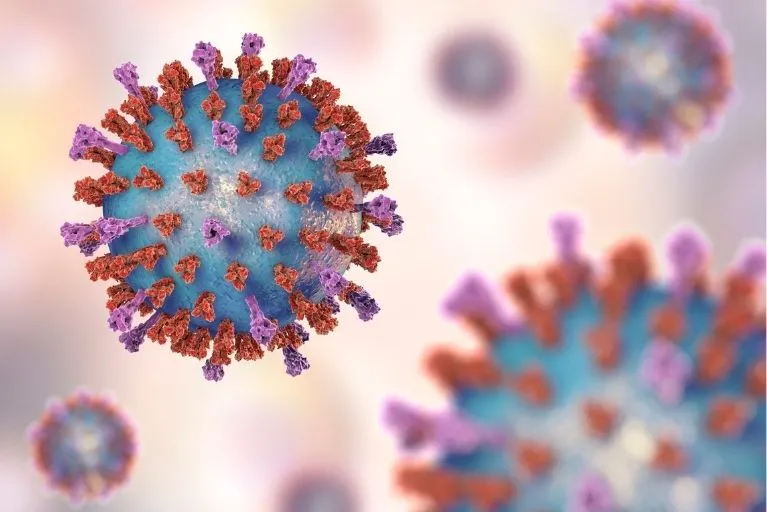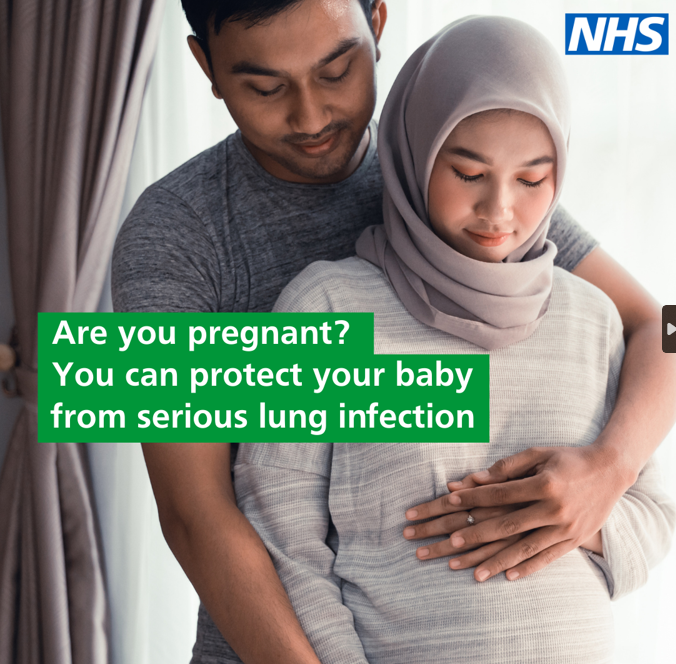We use cookies to help provide you with the best possible online experience.
By using this site, you agree that we may store and access cookies on your device. Cookie policy.
Cookie settings.
Functional Cookies
Functional Cookies are enabled by default at all times so that we can save your preferences for cookie settings and ensure site works and delivers best experience.
3rd Party Cookies
This website uses Google Analytics to collect anonymous information such as the number of visitors to the site, and the most popular pages.
Keeping this cookie enabled helps us to improve our website.
Respiratory Syncytial Virus (RSV)

What is RSV?
Respiratory Syncytial Virus (RSV) is an infectious disease of the airways and lungs. RSV infection often causes symptoms similar to a cold, including cough, sore throat, sneezing and runny or blocked nose. It can also make you become wheezy or short of breath and lead to pneumonia and other life-threatening conditions. Every year thousands of older adults need hospital care for RSV and some of them die. RSV can be more severe in people with medical conditions such as heart or lung disease or a weakened immune system.
RSV infection is also common in young children but is most serious for small babies, as it can cause a lung infection called bronchiolitis, which can make it hard to breathe and feed. Most cases can be managed at home, but around 20,000 infants are admitted to hospital with bronchiolitis each year in England. RSV is more likely to be serious in very young babies, those born prematurely, and those with conditions that affect their heart, breathing or immune system.
How is RSV spread?
RSV infections can occure all year round but cases peak every winter.
RSV can spread through coughs and sneezes. You can help to prevent the spread of the virus by covering your mouth and nose when you cough or sneeze and you can wash your hands frequently to reduce the risk of picking up the virus. Even with these measures it can be difficult to avoid RSV infection. The best way to protect yourself, is to have the vaccine.
Who is eligible for the vaccine?
The RSV vaccine is available free of charge to:
- patients who turn 75 years of age on or after 1 September 2024
- patients who are already aged 75 to 79 years old on 1 September 2024
- pregnant women from 28 weeks
Eligible patients will be sent an invitation booking link for their vaccination from the start of September 2024.
Common Questions for Older Adults
Q: Do I need to have the vaccine every year?
A: No, a single dose is expected to give you good protection for at least 2 years and is expected to last longer.
Q: Can I have the RSV vaccine at the same time as other vaccines?
A: RSV isn't normally arranged to be given at the same appointment as your Covid-19 or flu vaccines. You can have the RSV vaccine at the same time as the shingles or pneumococcal vaccine.
Q: Will I get any side effects?
A: You may get some soreness, redness or swelling at the site of the injection for a day or two after the vaccination.
Common Questions for Pregnant Woment
Q: When should I get vaccinated?
A: You should be offered the vaccine around the time of your 28 week antenatal appointment. If you haven't heard by this stage, please contact us to make an appointment. Having the vaccine in week 28, or within a few weeks of this, will help you build a good level of antibodies to pass on to your baby before birth. This will give your baby the best protection, including if they are born early. If this was not possible, you can still have the vaccine right up until you have the baby to protect you from infection and reduce the risk of you spreading the infection to your newborn baby.
Q: Is having the RSV vaccine during pregnancy safe for my baby?
A: The vaccine has been studied in clinical trials of almost 4,000 women and been given to thousands of women in national programmes. The vaccine has been approved by medicines regulators in the UK, Europe and USA on the basis of protection, quality and safety. You can talk to your midwife or GP or download a leaflet for more information.
Q: Do I need to have the RSV vaccine in every pregnancy?
A: Yes, you should have it in every pregnancy to give your new baby the best protection.
Q: Can I have my other maternal vaccines at the same time as my RSV vaccine?
A: It is important to have your vaccines at the right time in pregnancy:
- the whooping cough vaccine is usually given earlier in pregnancy (usually around 20 weeks)
- you should have your RSV vaccine once you are 28 weeks pregnant
- the flu vaccine can be given at any stage of pregnancy.
Published: Aug 29, 2024
